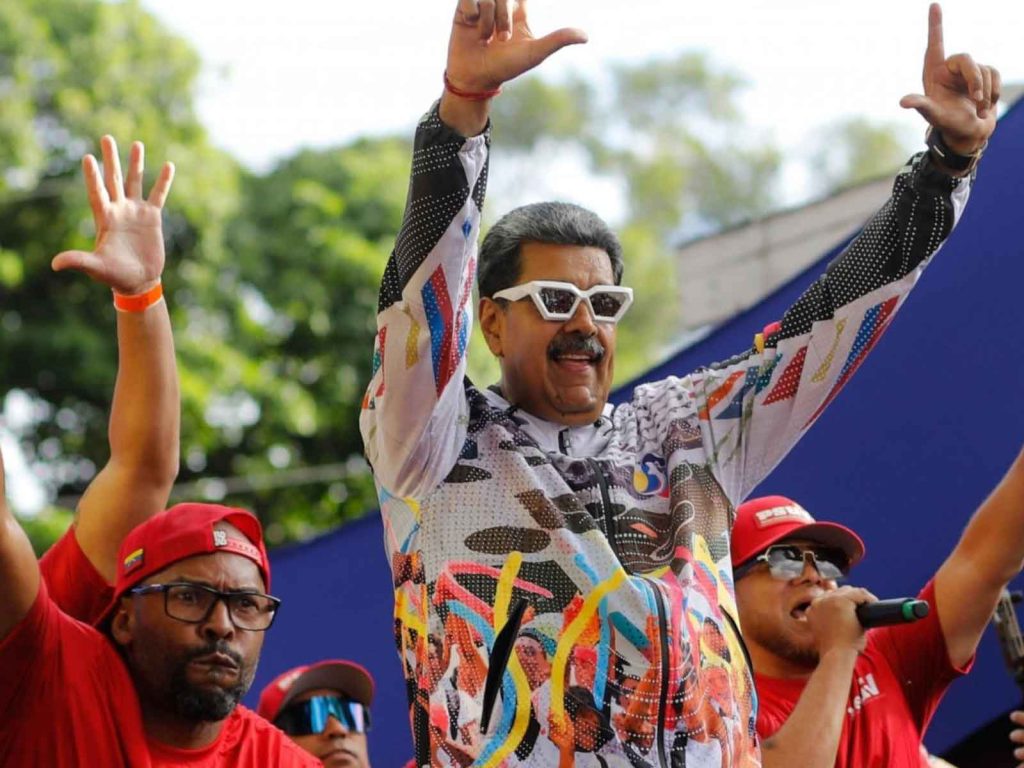
Venezuela’s presidential election on Sunday represents a pivotal moment for the nation, as President Nicolás Maduro faces his most significant electoral challenge in years. The election could either secure another six-year term for Maduro or signal a shift away from his government’s policies, which have been criticized for contributing to Venezuela’s ongoing economic crisis.
Maduro’s Bid for Re-election
President Nicolás Maduro, who has been in power since 2013, is seeking another term amid widespread economic hardship. His government’s socialist policies, once lauded for their anti-poverty initiatives, have faced severe criticism due to prolonged economic mismanagement. Venezuela’s economy has been plagued by hyperinflation, shortages of basic goods, and declining oil revenues. Despite these issues, Maduro retains a strong support base and significant control over state institutions.
Opposition’s Unified Front
For years, opposition politicians accused the Venezuelan electoral system of being rigged and subsequently boycotted elections. This year, however, opposition forces have united behind a single candidate in a bid to challenge Maduro’s dominance. The coalition includes a diverse group of former rivals, all rallying around a common goal of electoral change. Their unified effort marks a significant shift in Venezuelan politics, reflecting growing public discontent with Maduro’s administration.
Economic and Political Context
The Venezuelan economy remains a central issue in the election. Hyperinflation, widespread poverty, and a collapse in oil revenues have left many Venezuelans struggling to meet their basic needs. The government’s handling of the economic crisis has been widely criticized, and the opposition has made economic reform a central part of their platform. The outcome of the election could have profound implications for Venezuela’s economic recovery and political stability.
International Scrutiny
The election has attracted considerable international attention, with global observers closely monitoring the process for signs of fairness or fraud. Previous elections have been marred by allegations of irregularities and suppression of opposition voices. The international community is keenly watching to ensure that this election is conducted transparently and that the results reflect the will of the Venezuelan people.
Polls and Predictions
Recent polling suggests a competitive race, with the opposition gaining ground in areas previously dominated by Maduro’s supporters. However, the accuracy of polling data and potential election-related controversies add uncertainty to the final outcome. The stakes are high, with both Maduro and the opposition aware that the results could significantly impact Venezuela’s future trajectory.
Previous Electoral Challenges
In past elections, Maduro’s government has faced accusations of electoral fraud and undemocratic practices. As Venezuela votes, the focus will be on ensuring that the election process is fair and that any irregularities are addressed promptly. The outcome of this election will likely have far-reaching consequences for Venezuela’s political landscape and international relations.
As the nation heads to the polls, all eyes are on Venezuela, with the election poised to be a defining moment in the country’s ongoing struggle with economic and political challenges.




